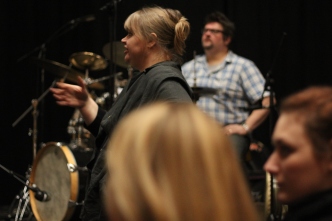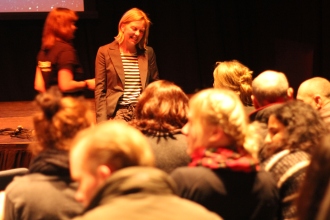MSc Film, Exhibition and Curation is a ground-breaking Masters programme directed towards interrogating and experiencing the circulation of film; and to understanding what film does to audiences and what audiences do with film.


When the University of Edinburgh launched the programme in 2010 (initially as Film in the Public Space) it became one of the first universities in the world with a programme of study dedicated to film exhibition. Since its inception the programme – connecting across the rich and varied festival, gallery, archive and exhibition cultures of Scotland – has gained a reputation for the excellence and rigour of its teaching; for its imaginative curatorial projects and creative collaborations; for the insights and impact embedded student researchers have contributed to industry partners; and for the quality and reach of its highly international group of graduates.
The programme is innovative in its content, offering a series of approaches to the often neglected consideration of film’s movements and migrations, and the ways that moving image media construct and communicate with their audiences. The programme is intensively taught and pioneering in its development of an active learning and teaching environment, developing new models of study, research, reflective practice and assessment.
The MSc programme in Film, Exhibition and Curation encourages students to combine rigorous critical thinking with their own experiments in creative practice. Students are taught in small groups and are encouraged to pursue original research: working independently and in managed projects; in small groups or in collaborative partnerships, both inside and beyond the university. There are a range of different types of assignments – from essays, through pitches and report and proposal writing, to curated events and programming – and we work with students to identify and develop their own fields of knowledge and competences. These innovative approaches to assessment mean that students are supported (not exposed) in producing experimental work. The programme creates an environment in which they can take informed risks; deepen their knowledge of film, discover themselves as reflective professionals; and develop an informed, individual and authoritative curatorial voice.
Our students come from a range of backgrounds, and share a fascination with film and with its many uses across the cultural sphere. They have gone on to careers across film exhibition and curation, in cultural mediation, in communications, in research, and across the arts. We welcome applications from students who want to deepen and develop their understanding of film and the ways in which it communicates to many audiences.